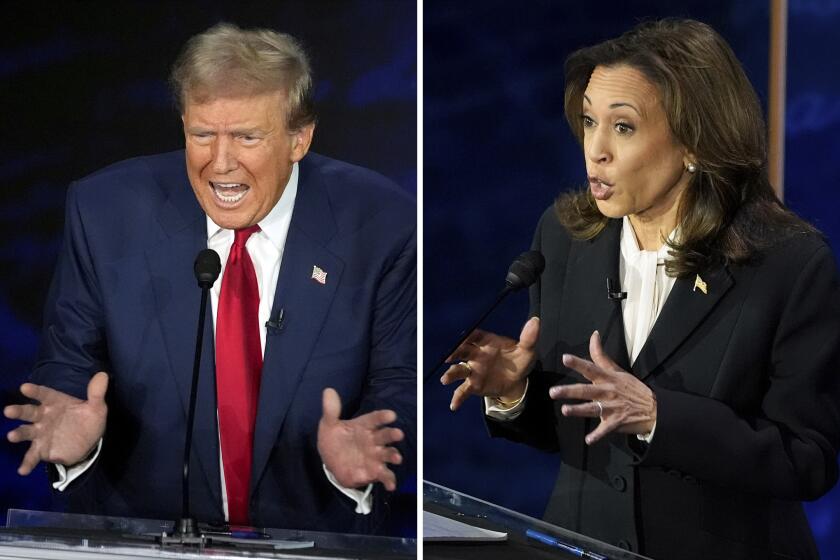Tone-Deaf on Iraq
U.S. troops have learned that Iraqis greet a foreign occupation army with rocket-propelled grenades, not flowers. And that was before the latest slap: the proposed addition to the occupation forces of perhaps 10,000 soldiers from Iraq’s former colonial master, Turkey. Washington is happy to have troops from a Muslim nation, but even members of the U.S.-appointed Iraq Governing Council are protesting. The United States badly underestimated reaction to the Iraqi invasion and the huge sums needed to rebuild Iraq. Misunderstanding Iraq’s suspicion of its neighbors and the hatred between Turks and Kurds populating northern Iraq threatens to make security worse and rebuilding harder.
Turkish lawmakers refused prewar pleas to let the U.S. open a second front to invade Iraq from Turkish territory. Most Turks opposed the war and don’t want their forces in Iraq. But an $8.5-billion U.S. loan to Turkey last month may have swayed Parliament, though Ankara denies any link.
Iraqis fear that the Turks will renege on promises to leave after a one-year deployment and will try to seize territory or attack Iraqi Kurds, who they fear intend to join Turkish Kurds in trying to form an independent state.
Other nations, which wouldn’t stir such concerns if they sent troops, have demurred because of Washington’s failure to get United Nations support. The Bush administration’s recalcitrance is costing dearly. On Thursday, a rocket-propelled grenade hit a convoy and killed another U.S. soldier outside Baghdad; in the capital, gunmen fatally shot a Spanish diplomat and suicide bombers killed at least 10 Iraqis. Giving the U.N. a political voice in Iraq could lessen anger at Washington and provide international legitimacy for Iraq’s reconstruction.
Two weeks ago, Secretary of State Colin L. Powell expressed confidence that the U.N. Security Council would pass a U.S.-written resolution of international support for rebuilding Iraq. But Washington underestimated the opposition -- the latest example of bad intelligence on matters Iraqi.
The White House has belatedly awakened to the problems, especially as its poll ratings plunge and the price of the Iraq occupation soars. Defense Secretary Donald H. Rumsfeld testily said this week he was not consulted on the decision to give the White House and State Department a larger role in Iraq’s reconstruction, until now solely under Pentagon command.
This rare public airing of differences among Bush officials should become a turning point: The U.S. should shift from military belligerence, going it alone and lecturing global allies to employing diplomacy to get them into the Iraq mission. It’s past time to deal with the insistence of U.N. Secretary-General Kofi Annan -- who has lost 21 colleagues, including top aide Sergio Vieira de Mello, to violence in Iraq -- that the world body and allies have a say if they play a role in Iraq. If Washington doesn’t change, the U.S. role in Iraq could be even more lonely, costly and bloody.
More to Read
Get the L.A. Times Politics newsletter
Deeply reported insights into legislation, politics and policy from Sacramento, Washington and beyond. In your inbox three times per week.
You may occasionally receive promotional content from the Los Angeles Times.










